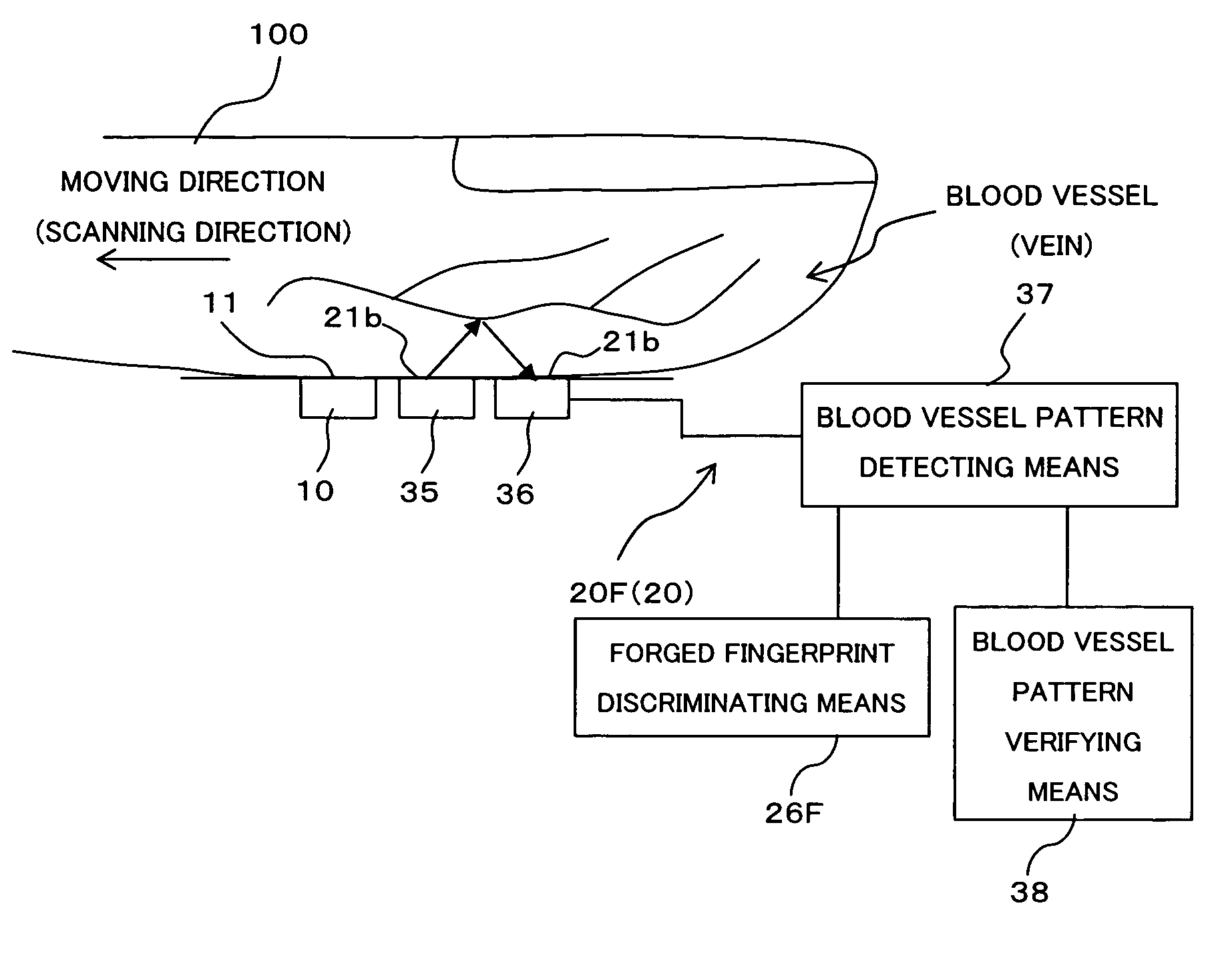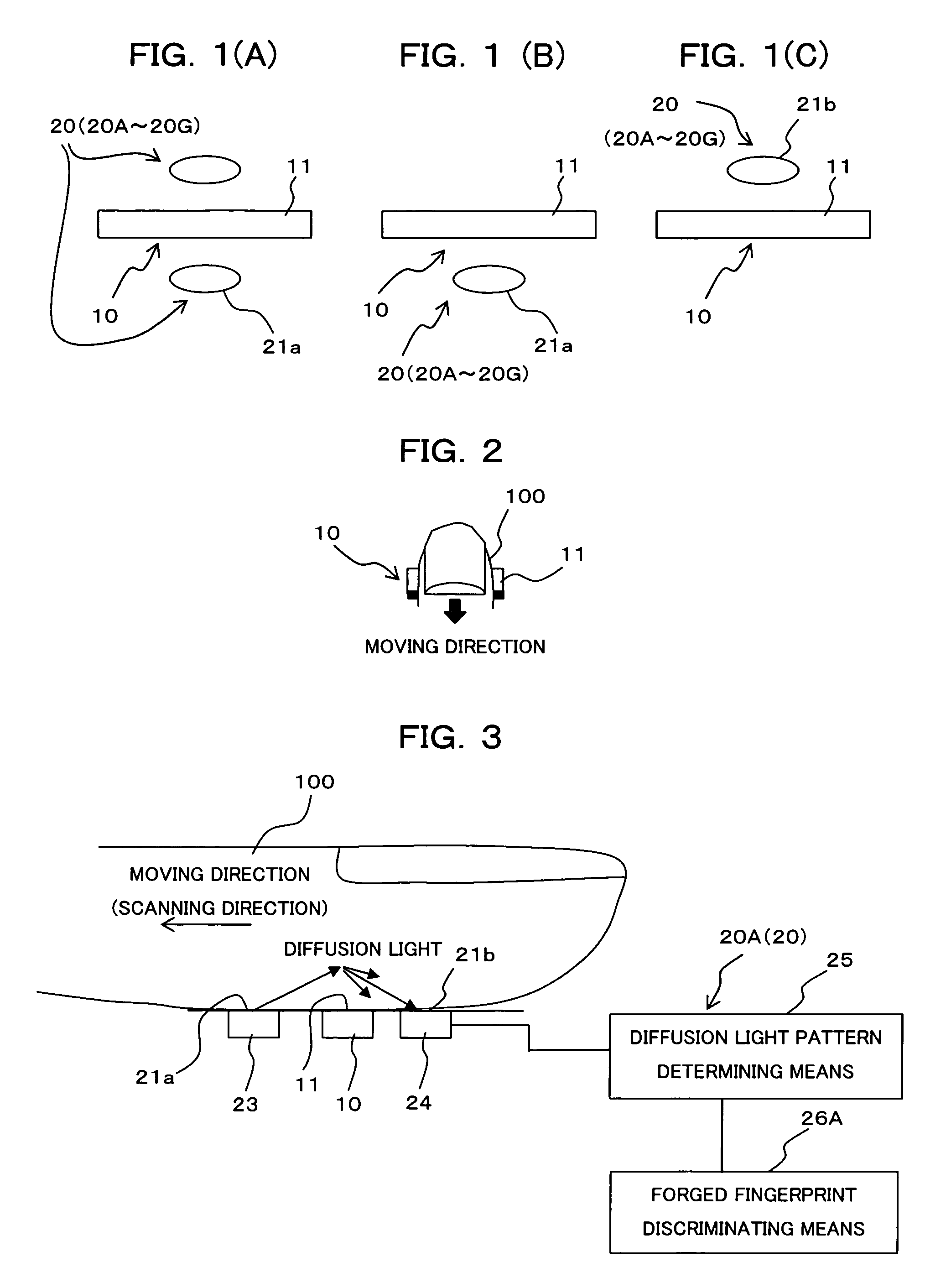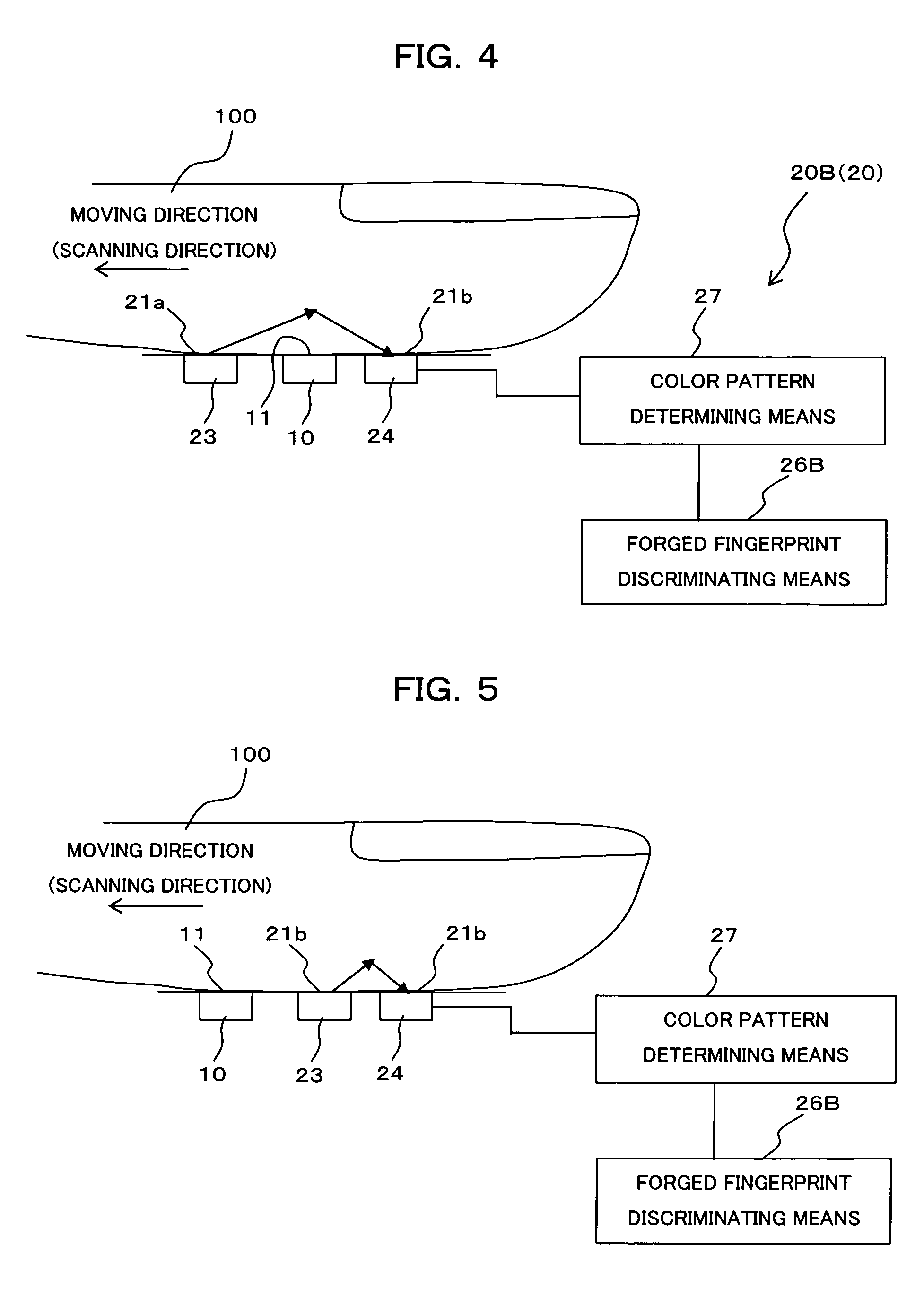Identifying device by biometrics information
a biometric and information technology, applied in the field of identification devices, can solve the problems of affecting the reliability of the system, illegal use of forged fingerprints, and high plagiarism risk of password or id cards,
- Summary
- Abstract
- Description
- Claims
- Application Information
AI Technical Summary
Benefits of technology
Problems solved by technology
Method used
Image
Examples
first embodiment
2-1 First Embodiment
[0077]FIG. 3 is a block diagram showing a construction of the identifying device (living-body detecting means) by biometrics information as the first embodiment of the present invention. The identifying device of the first embodiment shown in FIG. 3 is provided with a living-body detecting means (living-body detecting sensor) 20A comprised by a light emitting section 23, a light receiving section 24, a diffusion-light pattern determining means 25 and a forged fingerprint discriminating means 26A.
[0078]The light emitting section 23 emits and irradiates light of a specific wavelength to the finger 100, for which the fingerprint image is being sampled, and its light emitting surface is arranged in contact with the finger 100 being moved on the side of the finger moving direction (left side in this figure) of the sampling surface 11 as the living-body detection surface 21a and flush with or substantially flush with the sampling surface 11.
[0079]The light receiving se...
third embodiment
2-3 Third Embodiment
[0101]FIG. 6 is a block diagram showing a construction of the identifying device (living-body detecting means) by biometrics information as the third embodiment of the present invention. The identifying device of the third embodiment shown in FIG. 6 is provided with a living-body detecting means (living-body detecting sensor) 20C comprised by a pair of electrodes 28a, 28b, a resistance value determining means 29 and a forged fingerprint discriminating means 26C.
[0102]The pair of electrodes 28a, 28b receives an electric power of a predetermined voltage from a power source, not shown, and flows an electric current through the finger 100, for which the fingerprint image is being sampled, from the electrode 28a to the electrode 28b. Exposed surfaces of the electrodes 28a, 28b are arranged as the living-body detection surface 21b to be in contact with the finger 100 being moved on the side (right side in the figure) opposite to the finger moving direction of the sampl...
fourth embodiment
2-4 Fourth Embodiment
[0105]FIG. 7 is a block diagram showing a construction of the identifying device (living-body detecting means) by biometrics information as the fourth embodiment of the present invention, and FIG. 8 is a view showing an example of the fingerprint image with noise sampled in the fourth embodiment.
[0106]The identifying device in the fourth embodiment shown in FIG. 7 is provided with a living-body detecting means (living-body detecting sensor) 20D comprised by an electrode 30, a pulse signal generating means 31, an image noise detecting means 32 and a forged fingerprint discriminating means 26D. This living-body detecting means 20D applies an electric noise of a specific pattern to the finger 100 and discriminates a living body from a forged fingerprint based on appearance situation of a noise on the fingerprint image sampled by the fingerprint sensor 10.
[0107]Here, the sweep type fingerprint sensor 10 is a capacitance type or an electric-field detection type (weak...
PUM
 Login to View More
Login to View More Abstract
Description
Claims
Application Information
 Login to View More
Login to View More - R&D
- Intellectual Property
- Life Sciences
- Materials
- Tech Scout
- Unparalleled Data Quality
- Higher Quality Content
- 60% Fewer Hallucinations
Browse by: Latest US Patents, China's latest patents, Technical Efficacy Thesaurus, Application Domain, Technology Topic, Popular Technical Reports.
© 2025 PatSnap. All rights reserved.Legal|Privacy policy|Modern Slavery Act Transparency Statement|Sitemap|About US| Contact US: help@patsnap.com



